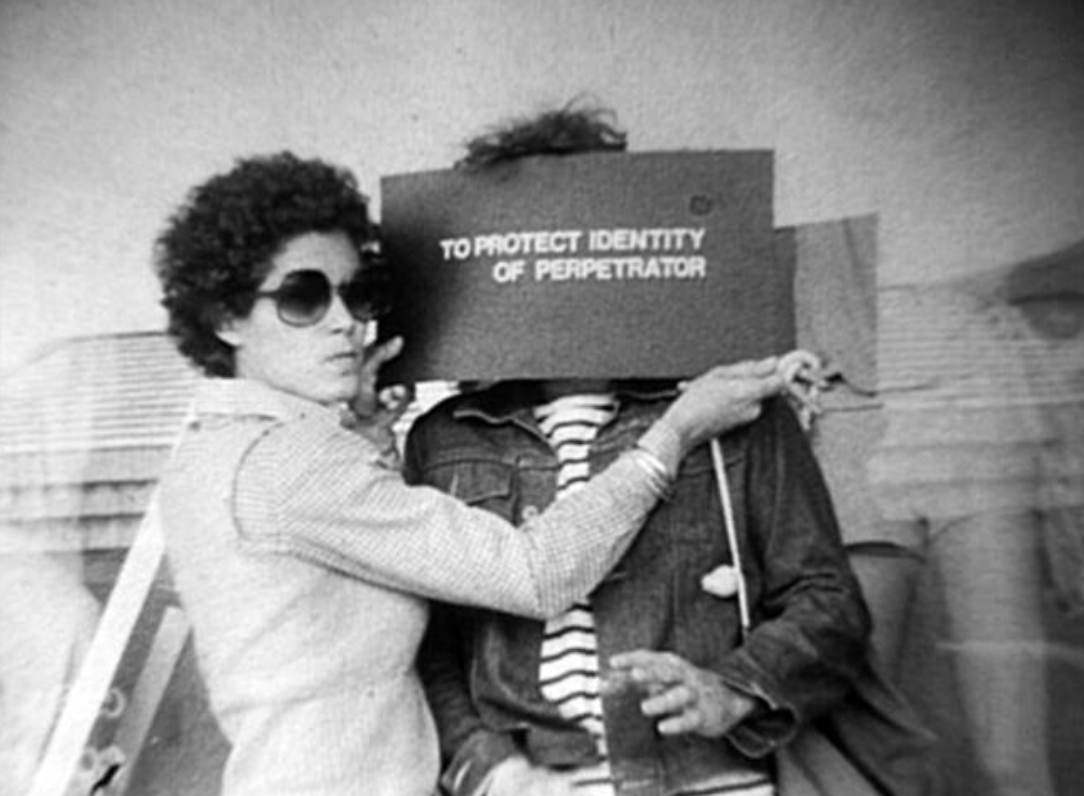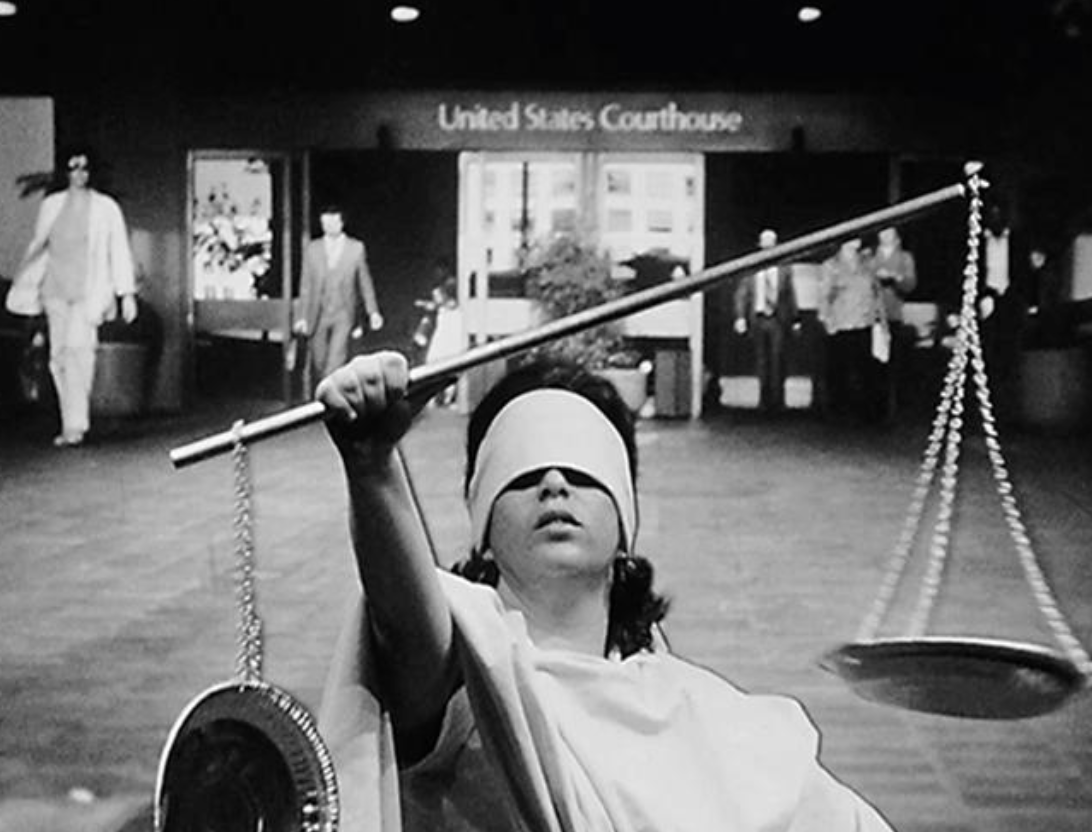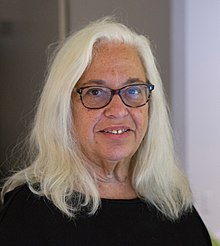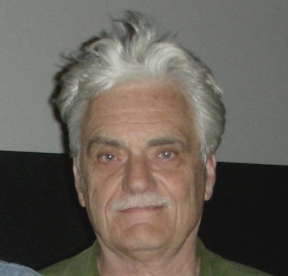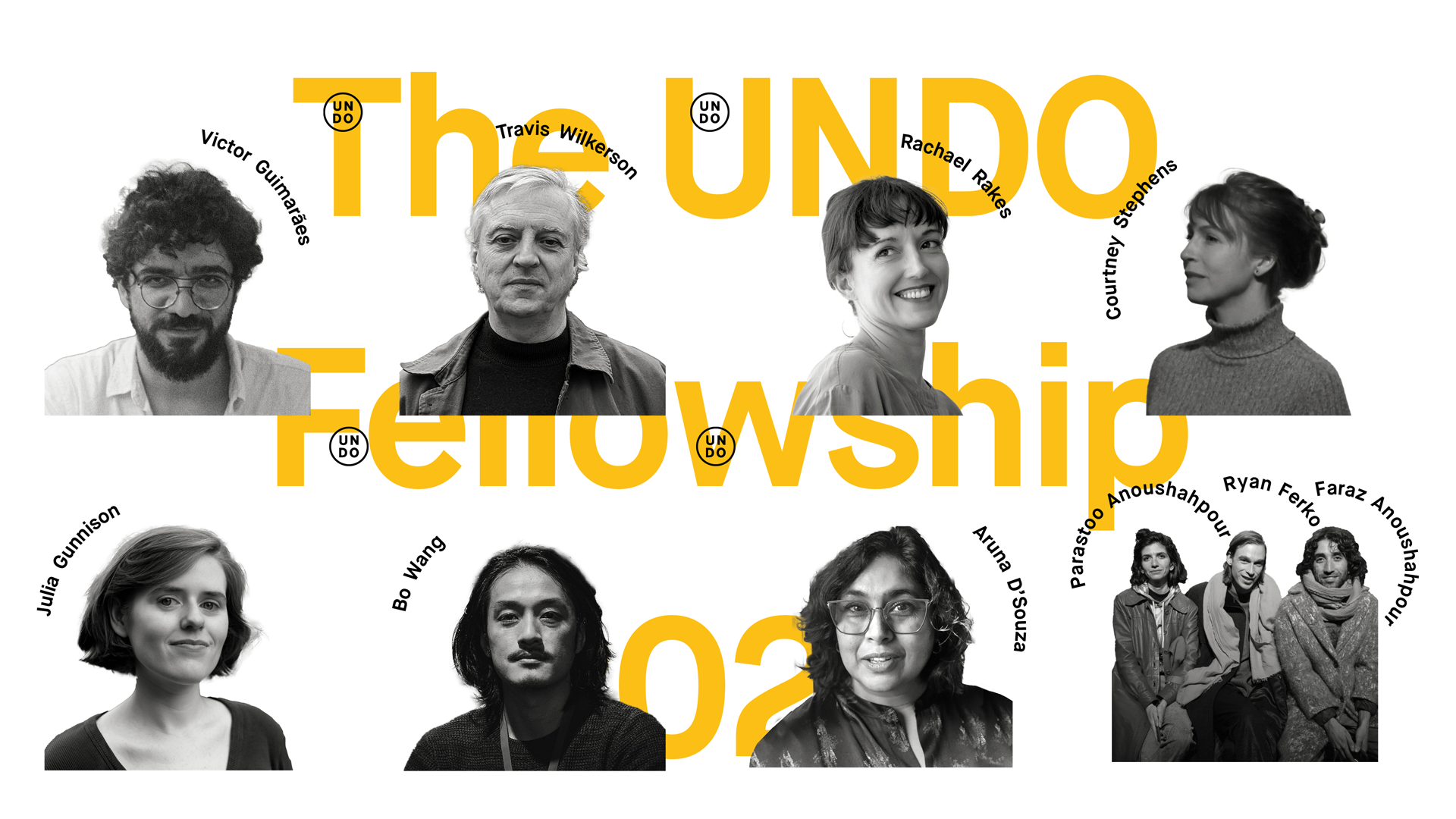Sep 9, 2020 at 8:00 pm
Three Crimes
This program is a part of a fundraising series to help pay for a new structure we built to keep our programs going and our community connected!
We’re delighted to launch a limited series of backyard screenings to fundraise for the new UNDO LEAN-TO. A new structure we built to keep our programs running and our community connected.
To kick things off, we are revisiting some of our most powerful programs and conversations we’ve had here over the years. Next up, a trilogy by filmmakers Ernest Larsen and Sherry Millner. Three Crimes was first programmed at UnionDocs on May 5th, 2019. For this updated program only, we have the chance to revisit a few highlights from a memorable and impactful conversation that took place here that night exploring the politics of misconduct, and definitions of criminality with Ernest and Sherry in conversation with prison abolitionist and writer Ruth Wilson Gilmore, and activist Craig Gilmore. Both Ernest and Sherry will be in attendance for conversation following the program.
Seats are extremely limited, socially-distanced and slotted for pairs or groups of three in shared quarantine pods. The max audience outside will be 16, with groups all spaced at least six feet apart.
We’re so excited to be partnering with the amazing 1:1 Foods!. A social enterprise serving food insecure families and supporting local food businesses in Brooklyn. This group of creative and talented folks will be teaming up with us to serve some amazing snacks at our upcoming outdoor fundraiser series to keep things festive, and folks comfortably sated.
Program
Shoplifting: It’s a Crime?
15 min., 1979
An ‘educational’ documentary on the evils of shoplifting is itself shoplifted, mocked, and then remade or extrapolated on the Proudhonian principle that ‘property is theft,’ with the figure of the shoplifter freed from the zone of morality and re-situated as a vital part of an alternative economy. The dual aim is to shake up the disciplinary role of the educational doc as well as conventional definitions of criminality.
Crime Around the Collar
Directed by Millner, scripted by Larsen
40 min., 1981
An experimental doc about an invisible issue: white-collar crime.
Barbara Kruger’s review in Artforum of a 1984 screening in New York, astutely notes, “when Millner asserts that it is the industrial park and not the slum that is the greatest breeder of crime, she alerts us to a cannily invisible kind of swindle… This absent operative defines the film’s agenda to display the hidden injuries of class and to make the invisible beneficiaries of hidden financial gains accountable. And visible.”
41 Shots
Co-directed by Millner & Larsen
16 min., 2000
On February 4, 1999, 19 of the 41 shots fired in 10 seconds by 4 NYPD Street Crimes Unit cops hit Guinean immigrant Amadou Diallo as he stood in the vestibule of the building where he lived in the Bronx…. This video essay seizes on the grotesque factual precision of this numerical data, proceeding with an intense contemplation of how police violence is produced and then addressed by other forces on the city streets.
Carnivalesque scenes of heavily-policed demonstrations and parades intimate both the possibility of resistance and a vision of the city as necropolis. Ghostly images of windows reflect the sinister theorization underlying the nationwide ratcheting-up of police activity known as the “broken windows” theory of criminology, leading to zero tolerance toward the most minor of offenses. In 2000, we posited that the police murder of Amadou Diallo was a template for a dark future—an assertion that after the events in Ferguson in 2014 and the subsequent rise of Black Lives Matter, was grimly established in public discourse.
Prizewinner at Oberhausen film festival, 2001
71 min
Sherry Millner (College of Staten Island, CUNY) was the initial Chair of the Media Culture Department. Millner’s projects have been described as radical interrogations of the dynamics of genre and communicative systems, while overturning remaining distinctions between public and private. Her many films and videos have been exhibited at film/video festivals throughout the U.S. Europe, Australia, and Asia, at major museum exhibitions, including two Whitney Biennials, and is distributed by Video Databank. Her photomontages and photo-text pieces have been published in many journals including Heresies, The Independent, Social Text, Public Culture. Beginning in 2006, she initiated a series of curatorial projects in film and video including State of Emergency (first iterated as a public video projection), Border-Crossers andTrouble-Makers for the 2008 Oberhausen Film Festival, Reclaim the Future at the 2009 Subversive Film Festival in Zagreb, and a program for the Visible Evidence Conference in 2011. She is currently co-producing Disruptive Film & Video: Everyday Resistance to Power, a new history of radical/ experimental short film and video, as a four-DVD set to be distributed by Facets MultiMedia. Her collaborative photo-text series, Notes from Europe, initially available on the Social Text website, was published in book form as Capital’s Greek Cage by Autonomedia in 2013. Her video Rock the Cradle (2013) has been exhibited in Barcelona, in Thessaloniki, Greece, Pori, Finland, Belgrade, Serbia, and Chicago,Illinois (at the It’s the Political Economy, Stupid exhibitions), and in Glasgow and Edinburgh, Scotland (withit the Economy exhibitions). Excerpts of her ongoing photomontage series No Ventilator Included were published in Printed Project (Dublin, Ireland). Her work is featured in such books as The M Word, Feminist Art and the Maternal; Space,Site, and Intervention: Issues in Installation and Site-Specific Art; in Digital Desires; and in Re-Framings: New Feminist Photography. In addition to festival awards for her films and videos, she has been the recipient of residencies, and grants from NYFA, NYSCA, the Jerome Foundation, Long Beach Museum, the Ucross Foundation, Can Serrat, Babayan Culture House, and Light Works, among others.
In addition to many film and video collaborations with Sherry Millner, Ernest Larsen writes fiction and media criticism. His criticism has been published in The Nation, Art in America, The Village Voice, Art Journal, The Independent, Exposure, Transition, The American Quarterly, Jump Cut, and Arena, along with essays in a number of anthologies. He wrote a book-length study of the film The Usual Suspectswhich was published in the British Film Institute Modern Classics series. His novel, Not a Through Street, was nominated for an Edgar. Also a scriptwriter and contributing producer for several PBS series, he has received grants, residencies, and awards from the Jerome Foundation, Paul Robeson Foundation, MacDowell Foundation, Blue Mountain Center, Gunk Foundation, and the Blumenthal Foundation. His collaborative video projects have been exhibited and won awards at major festivals throughout the world (London, Sydney, Berlin, Barcelona, Amsterdam, Dallas, Los Angeles, etc.) including two Whitney Biennials. With Sherry Millner, he has co-curated film/video series for the Oberhausen Film Festival and the Subversive Film Festival in Zagreb. He co-produced the film projections series State of Emergency and in 2013 co-curated a film series for the Flaherty Foundation, at Anthology Film Archives in New York, Global Revolt.


